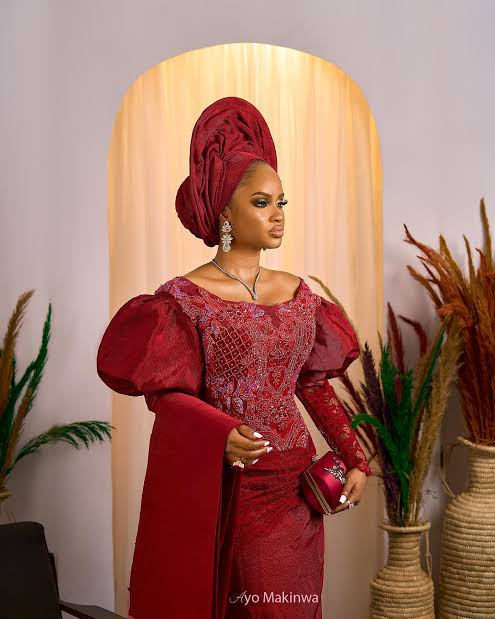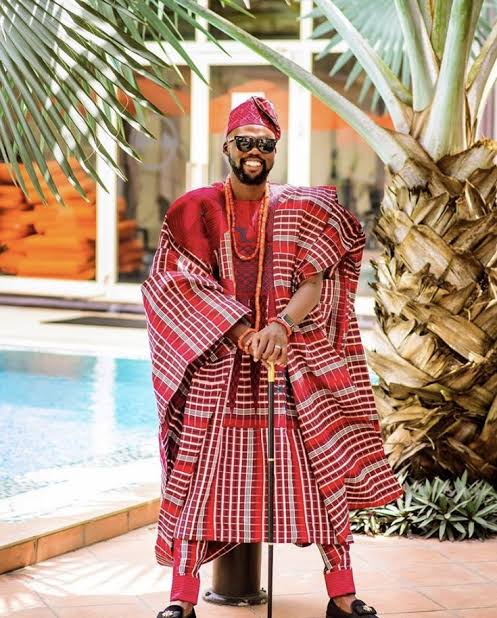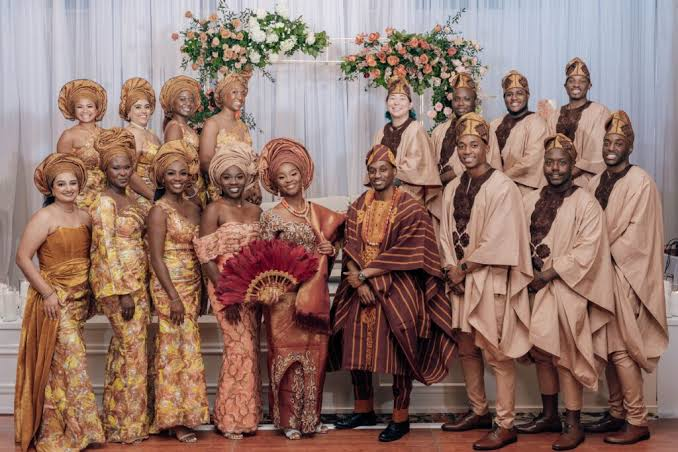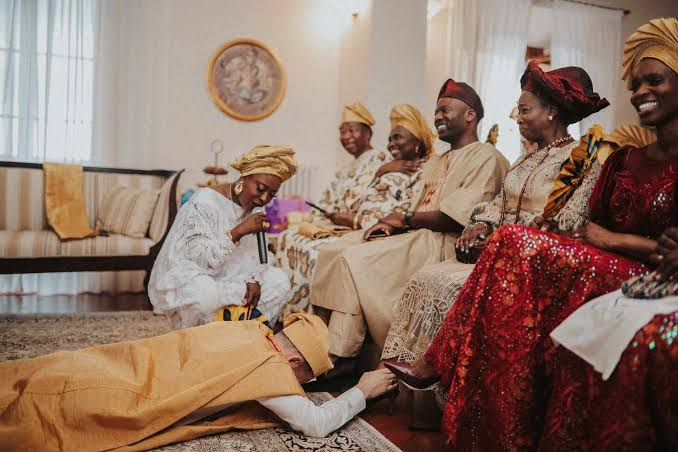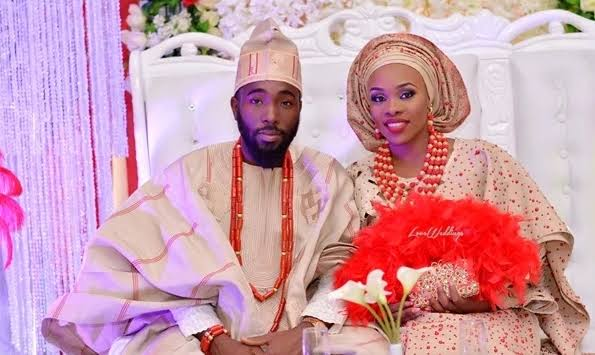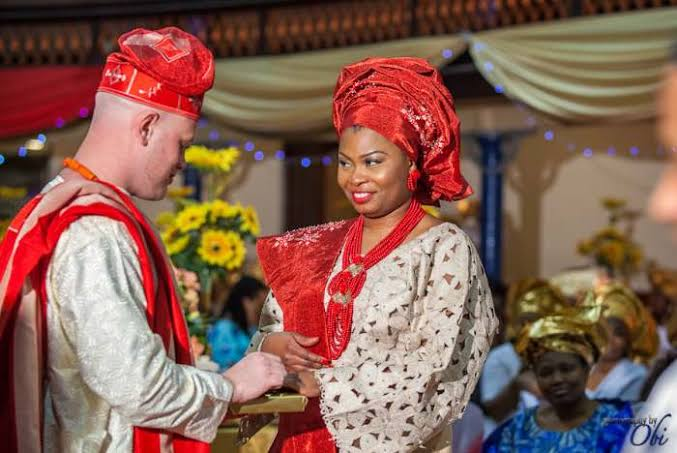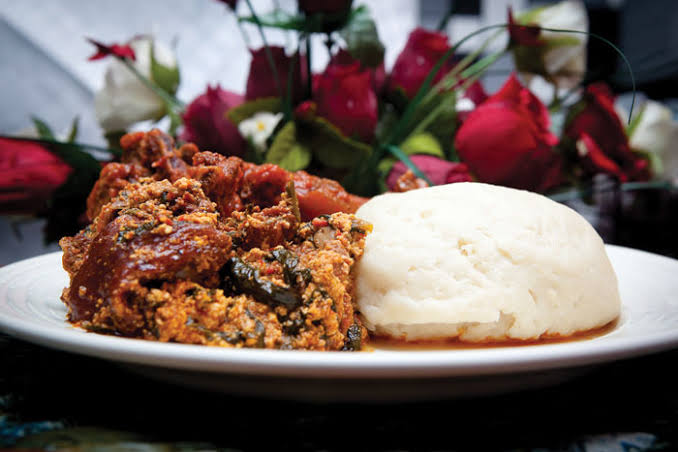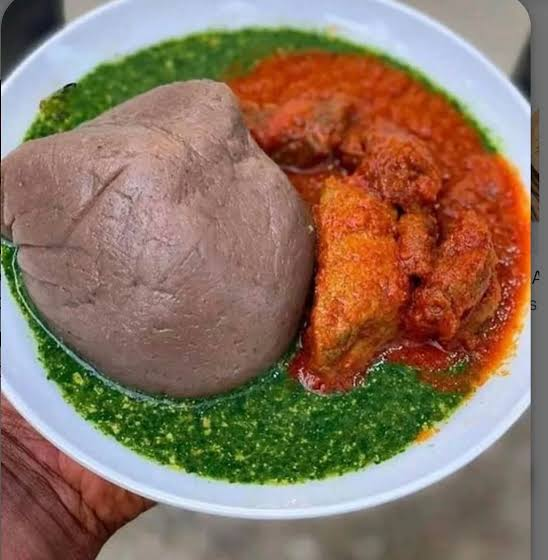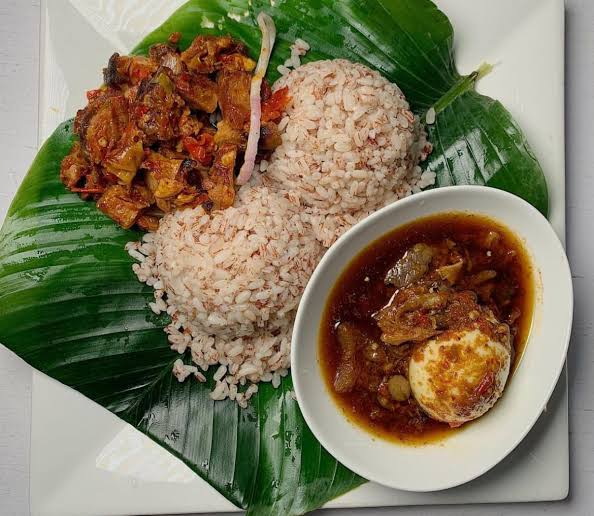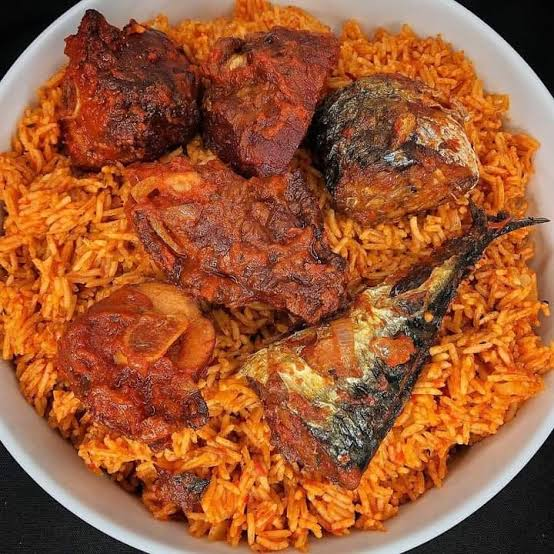Marriage in the Yoruba tribe of Nigeria, just like in many other cultures, is the promise of commitment between two people and families to come together and grow, love and live as one. For polygamists, it could be between three, four, or as many people as possible. A wedding ceremony is an important part of the marriage; one could even say it is the start of a marriage. A marriage without a wedding ceremony is not recognized in Yoruba land, as the bride's family will not fully recognize the man as their daughter's husband, and also the groom's family might not fully accept the woman as their son's wife. So in other words, in Yoruba land, the wedding ceremony makes the marriage official.
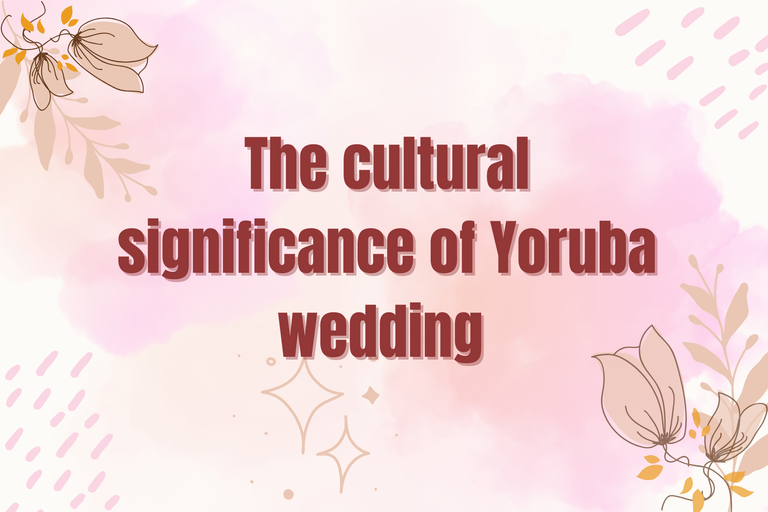
There are a number of significant customs or practices that define wedding ceremonies in Yoruba culture. We have the Idana (introduction), the owo ori (bride price or dowry), isegbegbe (exchange of vows), the traditional attires(aso oke and adire) and the traditional wedding ceremony(igbeyawo), the music, the food and drinks, etc. Now let's delve deeper into this.
Idana (the introduction)
Idana is a little pre-wedding ceremony. It could be a small gathering between both families or a large ceremony, depending on the status of the families. It is a gathering where the groom and his family meet the bride's family officially to introduce themselves and express their intentions towards the bride. The bride family gets to ask questions and know more about the groom's family, and likewise. This stage decides the fate of the couple, whether they stay together and get married or not. If the bride's or groom's family rejects the other due to some issues, it could mean the end of that relationship, so it's safe to say that this stage is very precarious. If both families accept each other, then we can say the couples are officially engaged. Then they get to decide so many other details about the wedding there in the meeting. The bride's family then makes up a list of what they want for the bride price and gives it to the groom's family. Both families then decide on the date for the wedding while consulting the couple. The elders also pray and bless the couple, and after all these, the serving of the food and drinks comes last.
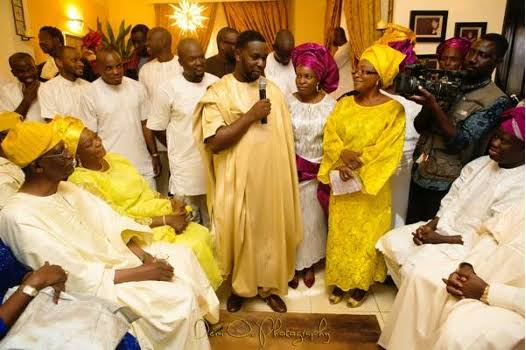
Source
Owo ori (bride price)
The bride price consists of a list of items that the bride's family presents to the groom's family to gift to them on the wedding day. The payment of bride price has always been a controversial issue in Yoruba land and some tribes in Nigeria, because some people think of it as the bride's family selling their daughter to the groom's family, but I beg to differ. I agree that sometimes some items on the list might be ridiculous, but the traditional Yoruba people believe that if a man can provide the items on the list, then he will be able to take care of their daughter, that he knows the worth of their daughter, and that he truly loves and wants to spend the rest of his life with her. So to the bride's family, the bride price is a way to challenge the groom's family, to test if they can take care of their daughter, to show them their daughter is not worthless and to the groom's family, it helps them show their financial worth, their resilience and persistence (hat their son is a grown and capable).
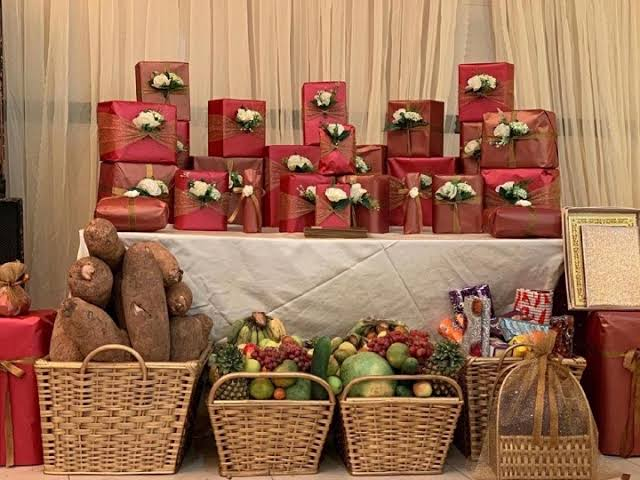
Source
Aso oke/ adire (the wedding attire).
The wedding attire portrays the Yoruba culture, as they are fabrics produced in the Yoruba land. The wedding attire could be aso oke or adire depending on the couple's preferences. The fabric can be sown into Sokoto and Ewu(top and trousers) or Agbada(a specific long robe sewn in Yoruba culture) adorned with intricate embroidery with Fila(head piece)for the groom while for the bride, it could be sown into Buba and Iro(top and wrapper or skirt)or Owo(gown) with Gele(head tie). There are several types of Aso Oke or adire that could be worn by the couple depending on the financial status of the family.
Usually in Yoruba weddings, the family usually chooses a specific design of fabric for all the guests to wear, which is different from the couples. The family usually purchases this fabric in large quantities and then sells it to the guests attending the wedding for the purpose of uniformity.
*Igbeyawo(the traditional wedding ceremony) *
The traditional wedding ceremony itself is the most important part of the celebration. It entails a lot of things, which include the exchange of vows, payment of bride price, presentation of gifts, prayers from elders of both families, music and dance, food and drinks, and so on. The wedding ceremony is a day filled with excitement and joy for both the couples and their families. The music is usually by bands with genres like Juju, Fuji, Apala, etc. The guests get to wine and dine and also present their gifts to the couples. Also, while the couples have their dance, several guests come around and spray money on them as a way of blessing them.
*Isegbegbe(exchange of vows)
This is a vital part of the wedding ceremony, where couples dedicate and commit to each other. This is done under the guidance of an elder, and they get to utter words like; mo> nife re(I love you), Iku nikan lole yawa(only death can do us apart), mo ma duro ti e( I will stand by you), etc. After this, the couples are pronounced husband and wife and the family and guests shower them with prayers of blessings.
Food and drinks
The food and drinks served at weddings differ depending on the couple's preferences and financial status. Examples of foods served includes, Amala dudu and Amala funfun(made from yam flour and cassava flour), jollof rice, fried rice, iyan(pounded yam), soups like egusi soup(melon), efo riro( made green leafy vegetable), efo elegusi( melon with vegetable), ewedu(made from a green vegetable),obe(soup made from peppers, tomatoes and onions), gbegiri(soup made from beans), etc., meats like chicken, turkey, cow, etc. and several different types of fishes. Drinks served may be alcoholic, non-alcoholic, or a combination of both. A typical traditional Yoruba wedding serves an alcoholic beverage known as Emu(gotten from palm trees).
Another Yoruba practice is the sharing of souvenirs. This is a practice where guests come with souvenirs to share with other guests, apart from their gifts to the bride. It could be something as little as a plastic soup spoon and a box of matches, or something as grand as a gas cylinder or electric water heater. As a kid, when my mom attended a wedding, I used to anticipate the souvenirs that she would come home with.
The Yoruba tribe has always been known not to spare any expense when it comes to their celebrations, and weddings are the cherry on top for them. Even a private, small wedding in the Yoruba Land will still showcase sophistication and affluence, as they tend to believe that a happy wedding filled with blessings means a happy home.
